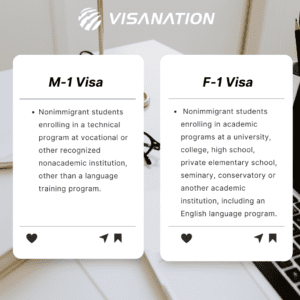EB-1B Green Card: Complete Immigrant Guide 2023
Highly accomplished individuals who are seeking a path to residency in the United States can benefit greatly from the EB-1B green card, a subcategory of priority workers. The Employment-Based First Preference Category for Outstanding Professors and Researchers, is designed to attract and retain exceptional talents from around the world who have made significant contributions in their respective fields. This guide will serve as your roadmap to navigate the complex requirements and procedures of the EB-1B Green Card.
EB-1B Requirements
One of the most significant requirements of the EB-1B visa is being able to demonstrate international recognition f0r the outstanding achievements you possess in the academic field. In addition, 3 years of work experience must be demonstrated in that field in addition to pursuing a position in a comparable research or tenure-track position with a U.S. university or institution of higher education.
We make employment immigration to the U.S. easy and simple.
Schedule a Consultation
While a labor certification is not required for the EB1-B, you do need to have a job offer. The petition should include all relevant evidence including the actual job offer issued to the foreign employee, along with all the terms and conditions of the position. Moreover, physical evidence demonstrating that the beneficiary has received outstanding awards or prizes in their academic field, published materials, membership in relevant associations, scholarly articles, etc. can be included.
Can the three years of experience be cumulative?
This is a great question! Per USCIS, the 3-year requirement can be achieved by combining both teaching and research experience. You cannot, however, apply experience you had while working on an advanced degree into the 3-year requirement. The exception is if the degree was sought and you taught the class with full responsibility for the content taught or “if the research conducted toward the degree had been recognized within the academic field as outstanding”.
Benefits of EB-1B Classification
EB-1B visa is an immigrant visa classification so it qualifies for a green card. Below are other notable advantages:
- Family Benefits: The spouse and children under 21 years old of EB-1B visa holders can apply for green cards.
- Priority Dates: The EB-1B category is a priority category, which means there is currently no backlog for visa numbers. This allows applicants to potentially obtain their green cards faster compared to other employment-based categories.
- No Labor Certification: Unlike other employment-based categories, the EB-1B does not require a labor certification from the Department of Labor, saving time and effort in the application process.
- Premium Processing: The EB-1B category is eligible for premium processing, which means applicants can pay an additional fee to expedite the processing of their petitions, typically receiving a decision within 15 calendar days.
- Self-Petition: Applicants in the EB-1B category have the advantage of being able to self-petition, meaning they do not require a sponsoring employer to file the petition on their behalf. This provides greater flexibility and control over the application process.
- No Job Offer Requirement: Unlike some other employment-based categories, the EB-1B does not require a job offer from a U.S. employer. Applicants can establish their eligibility based on their own accomplishments and do not need to secure employment prior to applying.
- Permanent Residency: The EB-1B category leads to permanent residency in the United States, allowing individuals and their immediate family members to live and work permanently in the country.
- Eligibility for National Interest Waiver (NIW): If an EB-1B petition is not approved, USCIS may consider the case for a National Interest Waiver (NIW) under the same application, which provides another opportunity for qualifying applicants to obtain a green card without a job offer or labor certification.
- Opportunities for Dependents: The EB-1B category allows dependents, such as spouses and unmarried children under 21, to accompany the primary applicant to the United States and obtain derivative green cards.
- Flexibility in Career Choices: Once granted an EB-1B green card, individuals have the freedom to pursue various employment opportunities without restrictions, giving them the flexibility to explore their career options.
- Access to U.S. Healthcare and Education: EB-1B green card holders and their dependents gain access to high-quality healthcare and education systems in the United States, including renowned universities, colleges, and medical facilities.
EB-1 Timeline
The steps for a United States employer to seek an EB1 visa for a foreign beneficiary as an outstanding researcher or professor are outlined below.
- Employer files Form I-140 along with the job offer and compelling evidence.
- When Form I-140 is approved, the foreign worker should file Form I-485, an application for adjustment of status, if the individual is in the U.S. If the individual is outside the United States, they will need to complete the process at a local consulate.
- If the I-485 is approved by USCIS, the individual will receive a permanent residence card in the mail. If the process was done overseas, the recipient will be able to enter the U.S. and receive an immigrant visa at the U.S. port of entry.
EB-1B Approval Rate 2022
For the fiscal year 2022, the U.S. Congress allocated a total of 281,000 employment-based green cards for issuance. However, as of the end of May, current data suggests that only 53% of these allocated green cards have been approved so far. The approval rate of EB1-B cases, assuming you can demonstrate a compelling case and that you meet the requirements, is relatively high.
Frequently Asked Questions
Who files the petition under EB1-B?
The employer should file the EB1-B for the foreign worker.
What format should the evidence of research of teaching be presented in?
This information can be included in the petition in the form of letters from current or former employers. Be sure to include their name, address, title, and a description of your responsibilities.
Does a permanent research job qualify under the requirements?
In the event that the position at the institution of higher education is not a tenured or tenure-track position, USCIS allows a “permanent research position” to qualify under the requirements as well. Permanent is defined as one that has an indefinite or unlimited time duration, unless there is reason for termination.
Is an LCA required prior to filing the I-140?
No, a labor certification is not required prior to filing the I-140.
Do I need to have a job offer for the EB-1B?
Yes, you need a job offer but you don’t need an EB1-B.
How does USCIS define “outstanding professor or researcher”?
The following requirements are how USCIS judges someone to be an outstanding professor or researcher to meet the EB1B criteria:
- Recognized internationally as outstanding in their specific academic field
- 3-years of work experience must be demonstrated in that field
- Offered a tenure-track position with a U.S. university or institution of higher education or comparable position with private employer if the employer has at minimum three full-time researchers and documented accomplishments in the field.
Can I qualify with a government agency?
No, federal, local or state-level government agencies do not qualify under the EB1-B unless the agency is a university or institution of higher education.
What are the major differences between applying for an EB1 Alien with Extraordinary Ability versus EB1 Outstanding Researcher or Professor?
There are some key differences outlined below:
- EB-1 Extraordinary Ability typically requires a higher level of achievement and ability applies to a wider range of fields including the sciences, arts, education, business and athletics.
- EB-1B applies to scientific and scholarly fields
- EB-1 Extraordinary Ability does not require a specific job offer
- EB1 Outstanding Researcher/Professor category must have been recognized internationally as outstanding in their specific academic field, plus 3-years of work experience and a tenure-track position with a U.S. university or institution of higher education or comparable position with private employer if the employer has at minimum three full-time researchers and documented accomplishments in the field.
We make employment immigration to the U.S. easy and simple.
Schedule a Consultation
If I can qualify for both the EB1 Alien with Extraordinary Ability and the EB1 Outstanding Researcher or Professor, which one is a better option?
Assuming you meet the qualifications for both the EB1 Alien with Extraordinary Ability may be better because it doesn’t tie you to a specific employer. The best way to know for sure which option is better is to discuss it with your immigration attorney.







